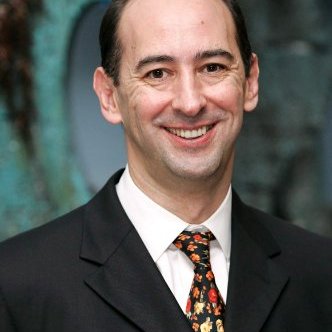Profile
Simon A. Mallal, MBBS, FRACP, FRCPA
Executive Committee Member
Biography
Simon Mallal, MBBS serves as Co-Director of the Tennessee CFAR Advanced Technologies Core. He is Professor of Medicine in the Division of Infectious Diseases, the Major E.B. Stahlman Chair in Infectious Diseases and Inflammation, and Professor of Pathology, Microbiology and Immunology at Vanderbilt University Medical Center. Dr. Mallal has championed research that has driven improvements in clinical practice in HIV and infectious diseases since the early years of the AIDS epidemic. He established the Institute for Immunology and Infectious Diseases in Western Australia and the Center for Translational Immunology and Infectious Diseases at Vanderbilt University Medical Center, and he serves as Scientific Director of the Vanderbilt Technologies for Advanced Genomics (VANTAGE) Core. In these roles he has led the development of an extensive suite of bulk and single-cell multi-omic genomic, transcriptomic, epigenetic and proteomic assays, as well as the associated informatics and multi-omic data analysis and visualization platforms, to address critical clinical and scientific questions across HIV research areas.
More About Simon A. Mallal, MBBS, FRACP, FRCPA
I am a physician-scientist trained in Clinical Immunology and Immunopathology drawn to the management of people living with HIV/AIDS early in the epidemic and have since championed research that has driven improvements in the clinical management of immunological and infectious diseases, drug hypersensitivity, HIV and other viral infections. My most significant contributions have included: 1. The first studies on recognizing and managing immune restoration disease in HIV, 2. The early use of HIV cohort studies for research and clinical practice with the development of novel statistical methods; 3. The recognition and characterization of thymidine-analog associated lipoatrophy and other mitochondrial toxicities, 4. The discovery and translation of pharmacogenetic testing to prevent abacavir and other drug hypersensitivity syndromes and description of the pathogenesis of these syndromes; and 5. The innovation of population-based host-pathogen genetic analyses to characterize viral adaptation to host alleles to facilitate vaccine and pathogenesis studies, epitope discovery and immunogen design. Our group discovered the association between HLA-B*5701 and abacavir hypersensitivity and championed its successful translation to the T4 stage of routine pharmacogenetic testing in primary care with collaborators internationally. I continue to research the adaptation of HIV and other pathogens to human leukocyte antigen (HLA) restricted immune responses and the potential for heterologous responses to chronic persistent, human-specific pathogens to mediate either helpful or unhelpful immunodominant vaccine responses or
hypersensitivity by focusing on HLA-allele/epitope/T cell receptor specific interactions from a population to single-cell level.I have mentored more than 30 now independent scientists and established AIDS/HIV clinical and laboratory services and the Institute for Immunology and Infectious Diseases in Western Australia and the Center for Translational Immunology and Infectious Diseases at Vanderbilt University Medical Center, which is intra-operable and has particular strength in quality assurance, automation, bulk and single-cell cellular and genetic technology, bioinformatics and statistics. I am also the Scientific Director of the Vanderbilt Technologies for Advanced Genomics (VANTAGE) Core, which offers an extensive suite of bulk and single-cell multi omic genomic, transcriptomic, epigenetic and proteomic assays and informatics platforms to support large-scale automated bio-banking and sophisticated downstream data analysis. Our laboratories work together to apply our host and microbial, bulk and single-cell genomics, transcriptomics, epigenetic, proteomic, metabolomic pipelines and epitope discovery platforms for the generation, analysis and visualization of cost-effective, high-dimensional multi-omic data and related functional assays to address critical clinical and scientific questions. More broadly, my priority is to support research toward HIV cure, improved HIV therapies, HIV vaccines, the mitigation of HIV-associated comorbidities, and to leverage implementation science approaches to reduce the incidence and burden of HIV. I served as the Program Director of the CFAR from its founding in 2015 until early 2024, and currently I serve as Co- Director of the CFAR Advanced Technologies Core.
